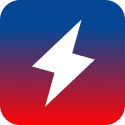ChatGPT Atlas: OpenAI's Revolutionary AI Browser Reshaping How We Navigate the Web
OpenAI's ChatGPT Atlas integrates AI directly into web browsing, enabling conversational interaction with online content. Discover how this new browser could revolutionize business research and information processing.
The line between AI assistants and web browsers has just been dramatically blurred. OpenAI has launched ChatGPT Atlas, an AI-powered web browser that fundamentally reimagines how we explore and interact with online information. This isn't just another browser update—it's a paradigm shift that transforms the traditional point-and-click experience into a conversational journey, with potential to reshape how businesses conduct research, engage with customers, and process information online.
What Is ChatGPT Atlas and How Does It Work?
ChatGPT Atlas represents OpenAI's bold entry into the browser market, integrating its powerful language model directly into the web browsing experience. Initially available for macOS (with Windows, iOS, and Android versions coming soon), Atlas transforms browsing from a passive activity into an interactive dialogue. Rather than simply displaying web pages, Atlas allows users to have conversations about content, ask follow-up questions, and receive contextually aware responses that incorporate information from the current page. The browser can read and interpret text, images, and data from websites, then provide summaries, insights, or answer specific queries about what you're viewing. This conversational approach eliminates the traditional workflow of opening multiple tabs, copying information, and switching between applications—instead offering a seamless experience where your AI assistant is always ready to discuss what you're seeing online.
Why Atlas Matters for Businesses
For business leaders, Atlas represents more than just a novel browsing experience—it signals a fundamental shift in how organizations might process information and conduct digital activities. Market research could become more efficient as Atlas allows teams to quickly analyze multiple sources and extract relevant insights through natural conversation. Customer service teams might use it to quickly find and synthesize product information while chatting with clients. Content creators could streamline their research process by having Atlas summarize key points from multiple sources simultaneously. The browser effectively turns web navigation into an AI-augmented knowledge work platform, potentially boosting productivity across departments. However, this transition isn't without concerns. As noted by critics like Anil Dash, there's a risk that AI-generated responses might sometimes substitute for actual web content, raising questions about accuracy and the relationship between content creators and AI intermediaries. Furthermore, businesses will need to consider how this new browsing paradigm affects their digital presence and SEO strategies—will optimizing for AI browsers become as important as optimizing for search engines? As Atlas and similar AI browsers gain traction, organizations may need to adapt their digital content to be both human-readable and AI-interpretable.
The Optomize.ai Perspective: Preparing for the Conversational Web
At Optomize.ai, we see ChatGPT Atlas as part of a larger trend toward more intelligent, contextual interaction with digital information. This development aligns with what we've observed across industries: businesses seeking ways to make information retrieval and processing more intuitive and conversation-based. While Atlas is still in its early stages, forward-thinking organizations should start considering how conversational browsing might integrate with their workflows and customer interactions. The competitive advantage will likely go to businesses that adapt quickest to this new paradigm. For UAE businesses particularly, which often operate at the intersection of global markets, tools like Atlas offer opportunities to streamline multilingual research and provide more sophisticated customer experiences. We recommend business leaders start by identifying information-heavy workflows in their organizations that could benefit from conversational AI assistance. Consider how your web presence might evolve to better serve both traditional browsers and AI-intermediated browsing. Most importantly, stay flexible—we're witnessing the early days of a significant shift in human-computer interaction, and adaptability will be key to leveraging these tools effectively. Want to explore how AI can help your business? Book a free consultation at Optomize.ai

